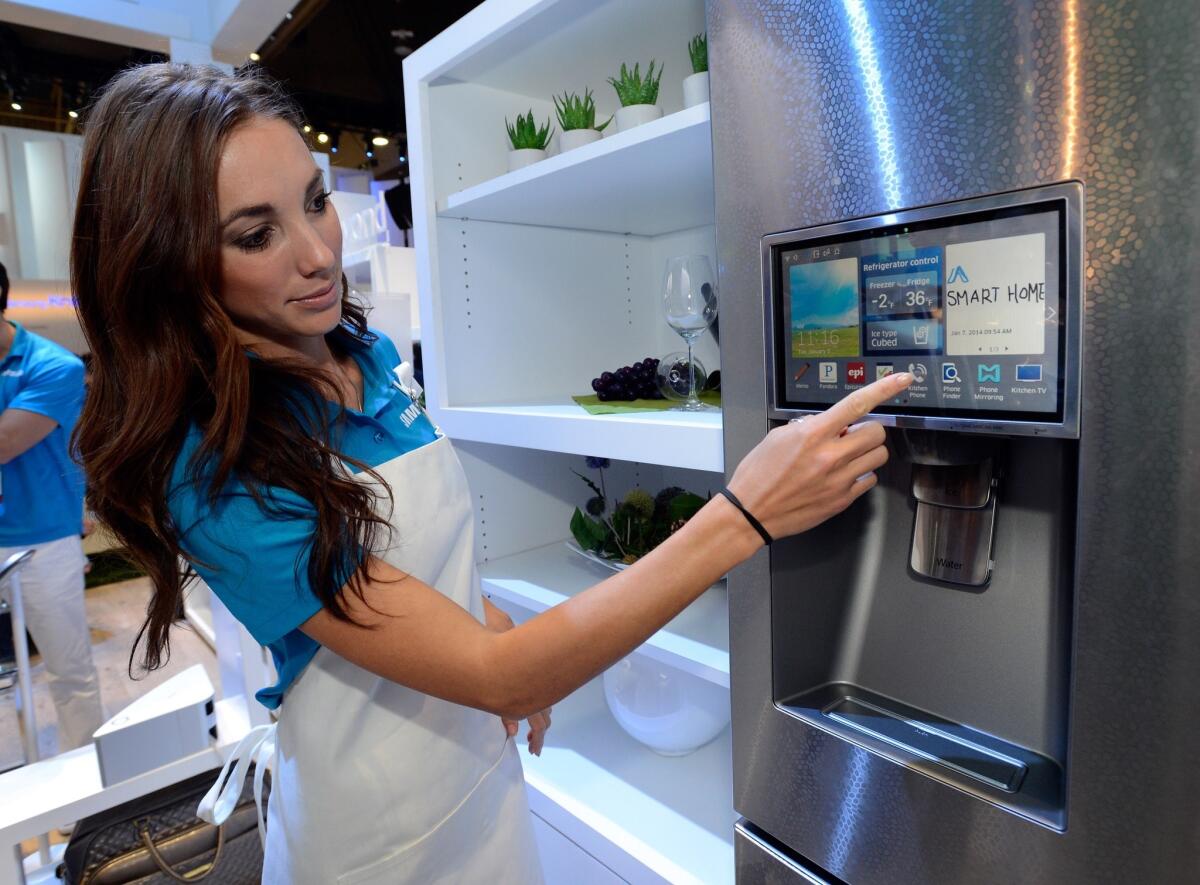Refrigerator among devices hacked in Internet of things cyber attack

- Share via
These days, even a refrigerator can fall prey to a cyber attack.
That’s what security firm Proofpoint is reporting Thursday after uncovering one of the first Internet of things cyber attacks, meaning it involved so-called smart appliances that are capable of connecting to the Internet the same way computers and smartphones do.
Included in the attack were smart TVs, wireless speaker systems, Internet-connected set top boxes and at least one refrigerator. Proofpoint did not say what company made the compromised refrigerator.
The appliances were compromised by hackers and used to send out malicious emails to others in an effort to grow the size of their botnet, which is an army of infected devices. Botnets can be used by hackers to perform large-scale cyber attacks against websites by drowning them with traffic.
PHOTOS: Top 10 tech gadgets we want to see in 2014
This particular botnet is notable because it comes when more tech companies are getting ready to begin selling smart appliances.
Earlier this week, Google entered the Internet of Things market by acquiring Nest for $3.2 billion. Nest is known for selling smart thermostats and smart smoke detectors. And at the Consumer Electronics Show earlier this month, numerous companies showcased their upcoming smart devices, ranging from Internet-connected audio speakers to a smart toothbrush that can connect to smartphones using Bluetooth.
The cyber attack could be a sign that as consumers begin to buy Internet-connected appliances they will also worry about the security of those devices the way they already do with their smartphones and laptops.
David Knight, general manager of information security for Proofpoint, said tech companies need to do a better job making smart appliances secure before they begin selling them on a large scale.
“I don’t think a consumer should be expected to know and fix if their refrigerator has been compromised,” Knight told the Times. “The industry is going to have to do a better job of securing these devices.”
ALSO:
After months of struggles, Venice video start-up Viddy sold
NSA-proof smartphone? New Blackphone Android promises privacy
Does Starbucks’ mobile app do enough to protect user information?







